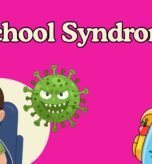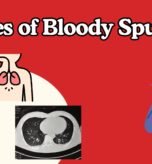A 5 years old child had been coughing since last 3 months and the parents had tried everything from repeated nebulisations, oral medicines, steam, ayurveda, homeopathy, even “babaji”, before they consulted a pediatric pulmonologist for the same. The cough was wet sounding, came in bouts and was worse at night, immediately after he lay down to sleep. He had no fever, was active in sports and was attending school though; he was frowned upon by teachers in school because of the cough (post pandemic).
There can be many reasons for chronic cough that just doesn’t get better. But let us discuss some of the common causes here.
The most common reason for children to have cough lasting for more than 4 weeks is a post-infectious cough or a post-viral cough. This usually takes 3-4 weeks to resolve after the acute sickness phase. The child continues to have dry or wet-sounding cough that may interfere with sleep. This type of cough requires no investigations and cough suppressants may be advised only in case of troublesome cough. Honey is considered most effective in controlling post-viral cough.
Another common reason is upper airway cough syndrome or post-nasal drip related cough. In this mucus drips from the nasopharynx into the throat and causes throat irritation. The cough is dry-hacking or a wet-sounding cough coming from the throat and not the chest. This kind of cough comes in bouts and often child needs to drink water to sooth the throat. There is no chest tightness or breathing difficulty and child feels better with throat soothing lozenges. The child usually has some nasal symptoms like nose block or runny nose along with cough which may require decongestant nasal sprays.
The third very common cause, especially in urban cities is childhood asthma. Allergy of the airway is asthma. The airways narrow down as a response to the allergen exposure and produce cough and breathlessness. Asthma is a clinical diagnosis however; in older children lung function testing by spirometry can be done. Dry cough along with chest tightness or breathlessness, that improves with salbutamol nebulisation in a child with family history of allergies strongly suggest a diagnosis of asthma. Treatment largely involves inhaled bronchodilators for acute relief and inhaled corticosteroids as controller therapy. Allergen avoidance is the best way to combat symptoms of asthma.
Another important cause of chronic cough in children is protracted bacterial bronchitis (PBB). Child complains of cough lasting more than 4 weeks and is usually treated like childhood asthma but has poor response to treatment. There is no accompanying symptom and child appears absolutely normal on clinical examination. A bronchoscopic evaluation shows swelling in the airways and bronchoalveolar lavage culture is positive for bacteria (H.influenzae, Strep. Pneumo or Moraxella catarrahalis). The cough responds well to 2-3 weeks course of an antibiotic (amox-clav). This entity is not very common but if left undiagnosed or untreated can lead to permanent changes in the lungs like bronchiectasis.
There are several other causes of chronic cough that need to be addressed in a child, like aspiration pneumonia, sinusitis, cystic fibrosis, primary ciliary dyskinesia, bronchiectasis although, these conditions are diagnosed and treated by a pulmonologist after thorough review of clinical history and examination.
Cough is a very common symptom witnessed in children with any respiratory issue. Respiratory issues are never trivial and thus, evaluation of a child with cough lasting more than 3 weeks is imperative and unavoidable.




